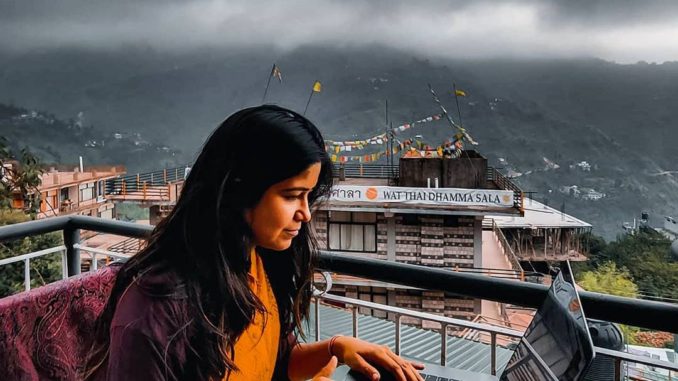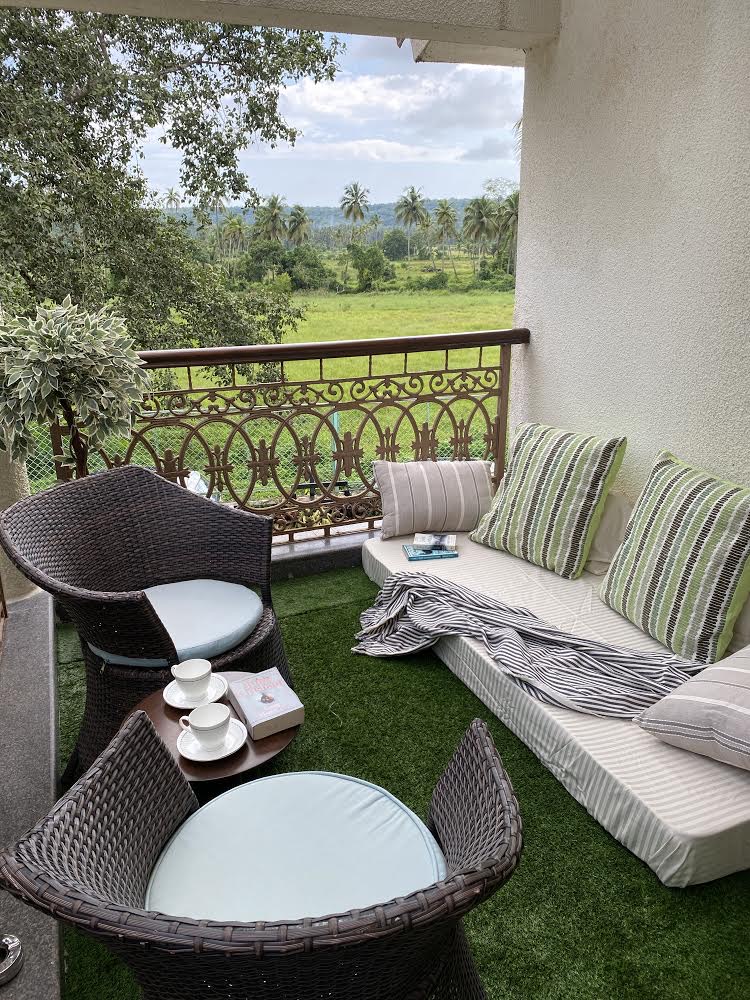
A dread of household chores and the monotony of being cooped up at home for months are prompting Indians’ rush to homestays and resorts in states that have eased travel restrictions.
And, because there’s no respite from work in these precarious pandemic times, they are taking their laptops with them.
“The first thing everybody asks when they inquire about our homestays is whether high-speed internet is available,” said Govind Gaur, founder and CEO of Workcations, a company that provides rental stays fully equipped with “office-like” facilities to support remote work. “Their next big concern is whether there is power (electricity) backup because they can’t afford to lose any data.”
Over the last couple of months, ever since the lockdown has been relaxed in India, states such as Himachal Pradesh, Uttarakhand, Rajasthan and Goa have opened their borders to allow tourists. And the urban, work-weary populace has also taken advantage of this opportunity to escape their Covid-ridden cities.
“At Airbnb, we are witnessing a growing trend of guests booking homes for longer stays, not just for leisure, but to also get away and work from another home,” said Amanpreet Bajaj, general manager of Airbnb India, Southeast Asia, Hong Kong and Taiwan. “Guests are increasingly using our platform to support remote working and temporary relocations. It is exciting for people to move beyond the confines of their homes and refresh themselves while still being able to work effectively.”
Rishi Modi, an Airbnb host based in Goa, said that after many months of almost zero business, his properties are suddenly running at 100 percent occupancy, and he is bringing in much more revenue than in the same period last year as the length of stay has increased from the usual two nights to a fortnight or more.
“I have had families check in with their kids, pets, maid and nannies,” said Modi. “Some of them have been staying for over two months now and are in no mood to leave. And I don’t blame them. It’s really hard for working couples to find time to work when they are saddled with housework and child care duties. Here, their needs are taken care of so that they can work in peace.”
Vasudha Sondhi, the owner of Parvada Bungalows, a boutique resort that sits at an altitude of 7,000 feet ( about 2,100 meters) in the North Indian town of Mukteshwar in Uttarakhand state, is happy that her guests are staying longer.
“Mostly, they want to be left alone to do their work and it helps that Parvada is spread out over three acres, so they can find their solitude,” said Vasudha. “We sometimes engage them in activities like apple-picking in the orchard if they want a break.”
Sharngan Aravindakshan, a lawyer and program officer at the Centre for Communication Governance at National Law University in Delhi, stayed at Parvada Bungalows for over two months. He used the time to finish a key project.
“I was staying with a few friends in Delhi, but after the lockdown, they all started leaving for their hometowns,” said Aravindakshan. “By the end of it, I was alone and saddled with the cooking and the cleaning and all my university work. After a point, I couldn’t take it anymore and started looking for a place where I could stay for a few months. I found Parvada online and it was just what I needed. I was in the hills, my clothes were getting laundered, my room was being cleaned, my meals were being served on time… what more could I need?”
This sudden spurt of business fueled by “workations” (work plus vacation) is good news for a sector that has been one of the worst hit by the pandemic.
A report published in September by the Confederation of Indian Industry and hospitality consultancy firm, Hotelivate, said that “the entire value chain linked to Travel & Tourism is likely to lose around 5 lakh crore or US$ 65.57 billion, with the organized sector alone likely to lose US$ 25 billion.”
It states that trends indicate there will be only 30 percent occupancy in hotels until the start of next year, with hotels seeing an 80 percent to 85 percent erosion in revenue streams.

Gaur said that he has had bookings from more than 250 people since he launched Workcations in mid-July. He hit upon the idea after his original venture, WanderOn, a community travel portal, was hit hard by the pandemic. The large number of queries he got from people who wanted to travel, yet still work, led him to start Workcations.
“We currently deal with more than 150 properties in six states — Himachal Pradesh, Uttarakhand, Goa, Rajasthan, Maharashtra and Karnataka,” said Gaur. “Once we figured out the needs of our clients, we went back to our partners and ensured that each property was fitted with a fast internet connection and power backup. We also pushed them to maintain hygiene protocols meticulously.”
Gaur is going the extra distance to ensure that his clients face as little difficulty as possible when they book a workation. For instance, some states, including Himachal Pradesh, insist on a Covid-negative certificate from a government-registered lab for a test conducted 72 hours earlier. To facilitate this, Gaur has connected with ICMR labs so that samples are collected from a client’s home before they travel.
“Remote working is here to stay and so are workations,” said Gaur. “And even though we have had some hard days initially, I am glad that the pandemic has revolutionized how people work and travel.”
(Edited by Siddharthya Roy and Judy Isacoff.)
The post Homebound Indians Seek Escape in ‘Workations’ appeared first on Zenger News.
